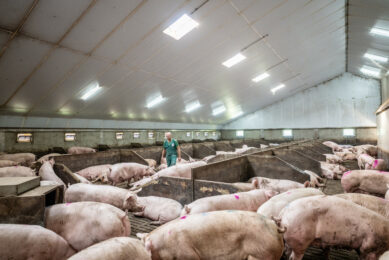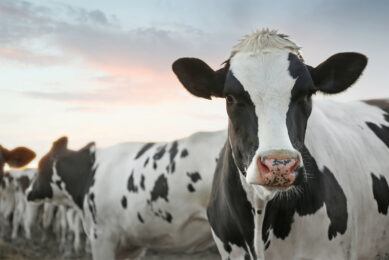MRSA in pigs – quo vadis?
Next month the EFSA (European Food Safety Authority) is meant to report on their EU-wide survey of pig farms to determine the extent of the MRSA (methicillin-resistant Staphylococcus aureus) problem. What do we expect and what could be the ramifications for the pig industry?
MRSA does not represent a major problem in pigs themselves, the bacterium can live in the nasal passages quite happily without apparently causing any severe problems to the pig. The main problem is that if the dust from infected pigs is inhaled, then the farmer, worker and vet can also carry the infection in their nose and it may then infect a wound etc, especially after surgery.
Patient screening
Some countries like the Netherlands and Denmark screen patients on admission to surgery to ensure that they are not carriers of MRSA. If they are, the patient is treated prior to surgery to eliminate the infection. The incidence of the problem, reportedly, has increased in the Netherlands, particularly in rural hospitals, where many of the local population are associated with pig production.
The significance of MRSA is not that it is just resistant to penicillin and methicillin, but also to the synthetic penicillins such as amoxycillin, beta-lactamase inhibitors, such as clavulanic acid but in particular to all of the generations of cephalosporins, which are widely used in human medicine, because of their efficacy and relative safety. This applies especially to the third and fourth generation cephalosporins, which are considered in human medicine as ‘drugs of last resort’.
Farm animal strain
It is expected that the Netherlands, Germany, Belgium, France, Italy and Spain will be the major countries affected with the farm animal strain (MRSA CC398). Some of the newer member states such as the Czech Republic and Poland may also have an elevated incidence due to pig movements from the west.
So far, Sweden has stated it is free, Denmark, Ireland and UK think they have a low to no incidence, which we are eagerly waiting to be confirmed.
Ramifications
So what are the ramifications for the pig industry? Directly, for slaughter pigs probably very little, as the likelihood of transmission to man from pork is considered a very low risk. For breeding stock however, this potentially could have an impact if purchasers insist that the breeding stock is from MRSA-free stock.
We have encouraged this in the UK because we consider ourselves to be a no to low level of infection country. I doubt that the authorities will insist on a cleansing operation of all infected herds but new herds should consider starting with clean stock.
For farm workers, vets and laboratory staff, there could be an impact if they are expected to undergo surgery or suffer from an immunosuppressive problem, but probably Streptococcus suis (meningitis) would be more of an issue and working with pigs would not be advised.
Renewed attacks
The main problem, as I see it, is the renewed attacks on the use of antimicrobials in pig production. We are already seeing a response by the regulators (EMEA – European Medicines Agency) requesting additional risk assessments for antibiotic resistance development in Staphylococcus aureus, as well as the usual zoonotic infections such as Salmonella and Campylobacter spp.
There will be calls from the medical profession for the vets to stop using antibiotics of ‘last resort’, such as the cephalosporins. The anti-antibiotic lobby also will increase their activity.©
Human medicine
In pig production, the bulk of the antibiotics used are the older, cheaper, less active, generic antimicrobials such as the tetracyclines, trimethoprim/sulphonamides, basic penicillins, which generally continue to work well and are not so commonly used in human medicine any longer.
It is only in special circumstances that the newer, very expensive, injectable formulations of cephalosporins are used, so the pressure on removal or restricting the use of the older antibiotics could be considered to encourage the use of the more modern ones, which may potentially have more of an impact on human health.











